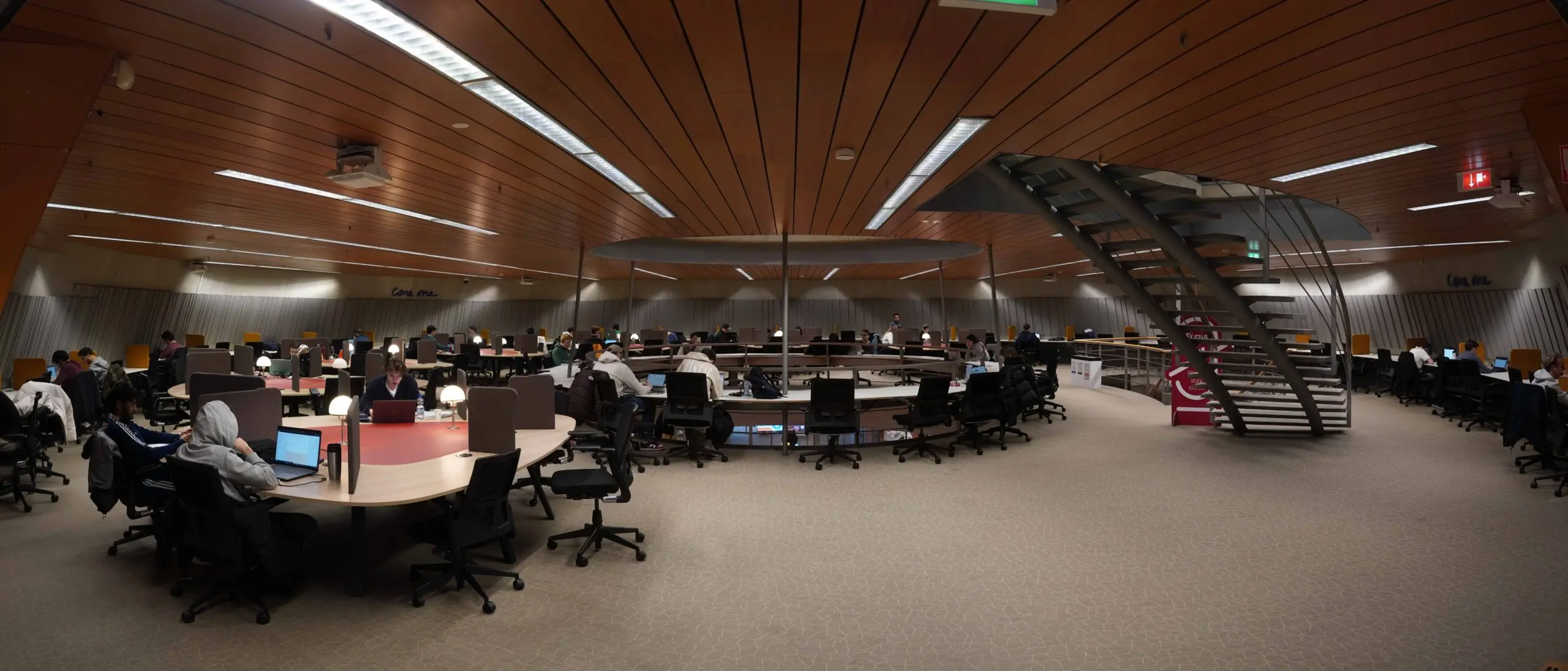One quarter of master’s degree programmes in the Netherlands do not admit applicants from universities of applied sciences, research by the Inspectorate of Education shows. This while universities are required to evaluate admission according to individual ability. At TU Delft, this pertains to three of the 34 master’s degrees.
Students working in the university library. (Photo: Thijs van Reeuwijk)
The Inspectorate of Education notes that while it is the intention to do so, university of applied sciences (from here we use the Dutch term hbo) and university education are not valued equally. A degree certificate from a university of applied sciences, which is characterized by more practical approach than an academic education at a university, does not give admission to every university master’s programme by far. One quarter of master’s degree programmes do not admit applicants from the hbo, not even after a bridging programme in which they work on their basic knowledge and academic skills.
The Inspectorate’s research, entitled Hbo’ers gelijkgeschakeld (hbo applicants synchronised, in Dutch), was published on Thursday. The research is a follow-up to a report published in 2018. The original report showed that (in Dutch) almost 30% of master’s did not accept hbo applicants. That figure is now 23.4%.
This is different at TU Delft where three of the 34 master’s are not open to applicants from universities of applied sciences. Graduates from the hbo are welcome at the other 31 masters. That said, TU Delft does require them to take a bridging programme to close any gaps with university graduates. Relatively more master’s at the other technical universities are also accessible for hbo applicants than at other universities.
Research masters
The University of Leiden (38.5%) and the University of Amsterdam (42.5%) offer the least chance to applicants from the hbo that want to do a master’s. This is mostly because of the relatively high number of research master’s at these universities. Of these often two-year academic level research degree programmes, 77% (of the 96 research master programmes) do not admit hbo diplomas as a previous education diploma. In the ‘general’ master’s, this is about 15% (of the 655 master’s programmes).
The master’s thesis is a major obstacle
This time the Inspectorate asked universities to explain their reasons for rejecting hbo applicants in detail. In short, the institutions said that it was due to a lack of ‘academic skills’. They say that the master’s thesis is a major obstacle. One programme director told the Inspectorate that some of the hbo applicants have ‘a very small chance of getting a degree as they experience difficulty with the level’. Another said that they may ‘lower the bar’.
The Inspectorate countered these arguments by saying that the bachelor and master system introduced in around 2000 assumes that hbo and university education are at the same level because they represent the same degree. Furthermore, an hbo bachelor’s degree should give access to a university education, often through a bridging programme. Master’s degree programmes may set admission requirements, but they may not ‘exclude whole groups according to their previous education’.
Lack of academic skills
One of the reasons universities give for non-admission is the lack of academic skills, a lack that they deem as being too big to close through a bridging programme. It is a grey area as universities may refuse to admit prospective students if they cannot gain the required knowledge and skills within a ‘reasonable time frame’.
The Inspectorate calls on Eppo Bruins, the Minister of Education, to clarify the legal requirements for universities on this point. The Inspectorate is uncertain exactly how this should be done as long as the admission to master’s programmes is improved in a way that is practical for universities. The Minister said that he would respond to the research before summer.
The ISO (Intercity Student Consultation) union also stresses the ‘legal requirement for institutions to individualise their practices so that students can continue their education’. It believes that it would be beneficial if the bridging programmes would be funded by the Government so that universities do not have to pay for extra tuition themselves.
HOP, Olmo Linthorst/Delta, Kim Bakker



Comments are closed.